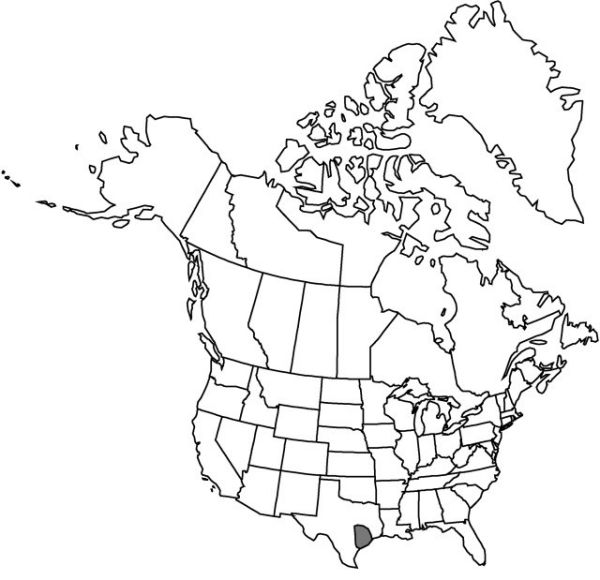Difference between revisions of "Zephyranthes traubii"
Pl. Life 7: 79. 1951.
Basionym: Cooperia traubii W. Hayward Herbertia 3: 63, 65 (fig. s.n.), 66 (figs. 1–3). 1936
FNA>Volume Importer |
imported>Volume Importer |
||
| Line 51: | Line 51: | ||
|publication year=1951 | |publication year=1951 | ||
|special status= | |special status= | ||
| − | |source xml=https:// | + | |source xml=https://bibilujan@bitbucket.org/aafc-mbb/fna-data-curation.git/src/bb6b7e3a7de7d3b7888a1ad48c7fd8f5c722d8d6/coarse_grained_fna_xml/V26/V26_586.xml |
|genus=Zephyranthes | |genus=Zephyranthes | ||
|species=Zephyranthes traubii | |species=Zephyranthes traubii | ||
Revision as of 22:19, 27 May 2020
Leaf blade dull green, to 1 mm wide. Spathe (2–)3–4 cm. Flowers erect; perianth white, sometimes tinged and veined pink, salverform, (11–)12–15.4 cm; perianth tube primarily white, 9–12.6 cm, diam. uniform, 3/4 or more perianth length, at least 15 times filament length, 3–5 times spathe length; tepals often reflexed; stamens fasciculate, appearing equal; filaments subulate, 0.2–0.4 cm, apex blunt; anthers 4–8 mm; style longer than perianth tube; stigma capitate, exserted more than 2 mm beyond anthers; pedicel absent. 2n = 24.
Phenology: Flowering early summer–mid fall (Jul–Nov).
Habitat: Primarily sandy loam, open fields, coastal plains
Elevation: 0–100 m
Distribution

Tex., ne Mexico.
Discussion
Selected References
None.
Lower Taxa
None.